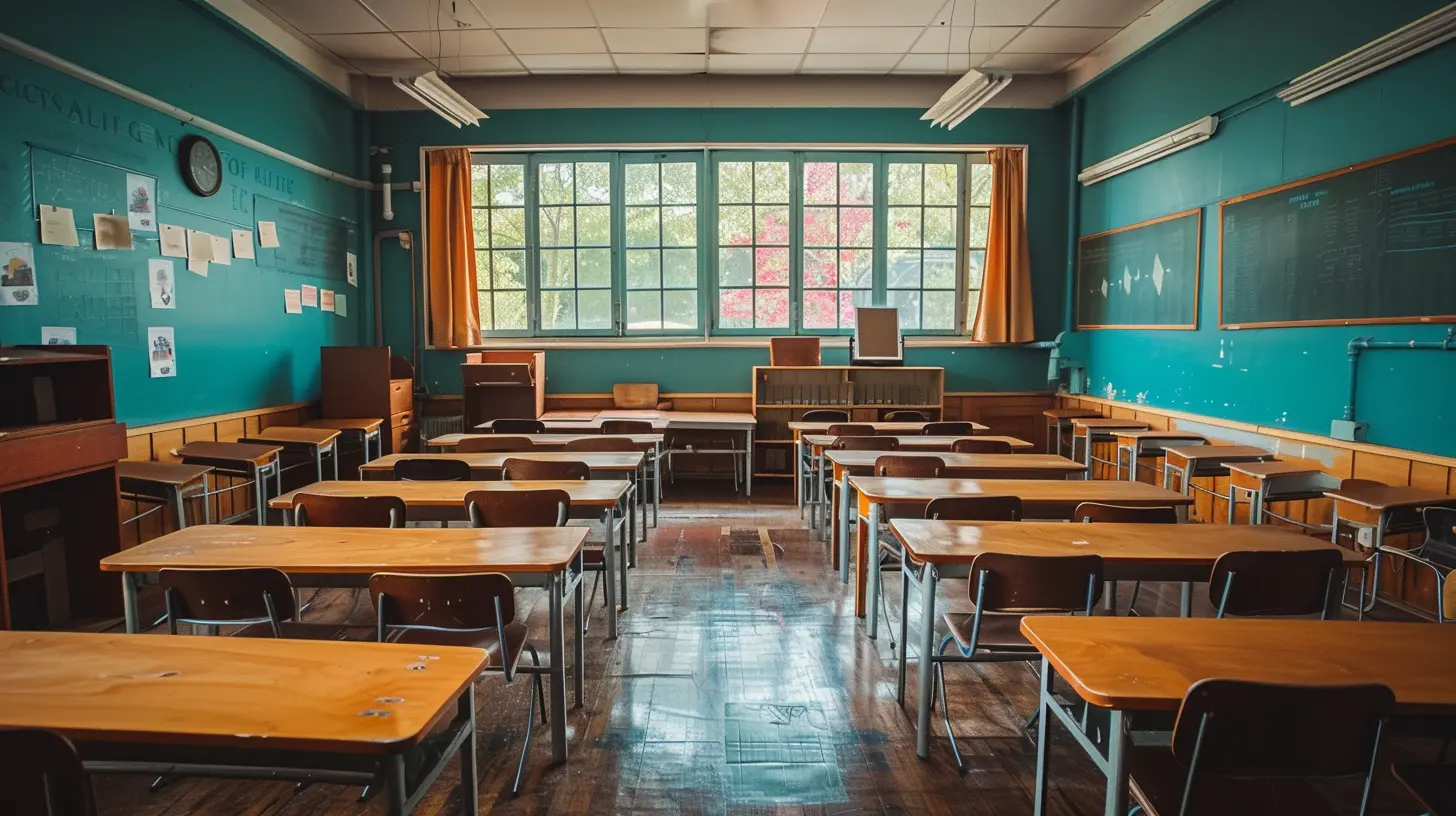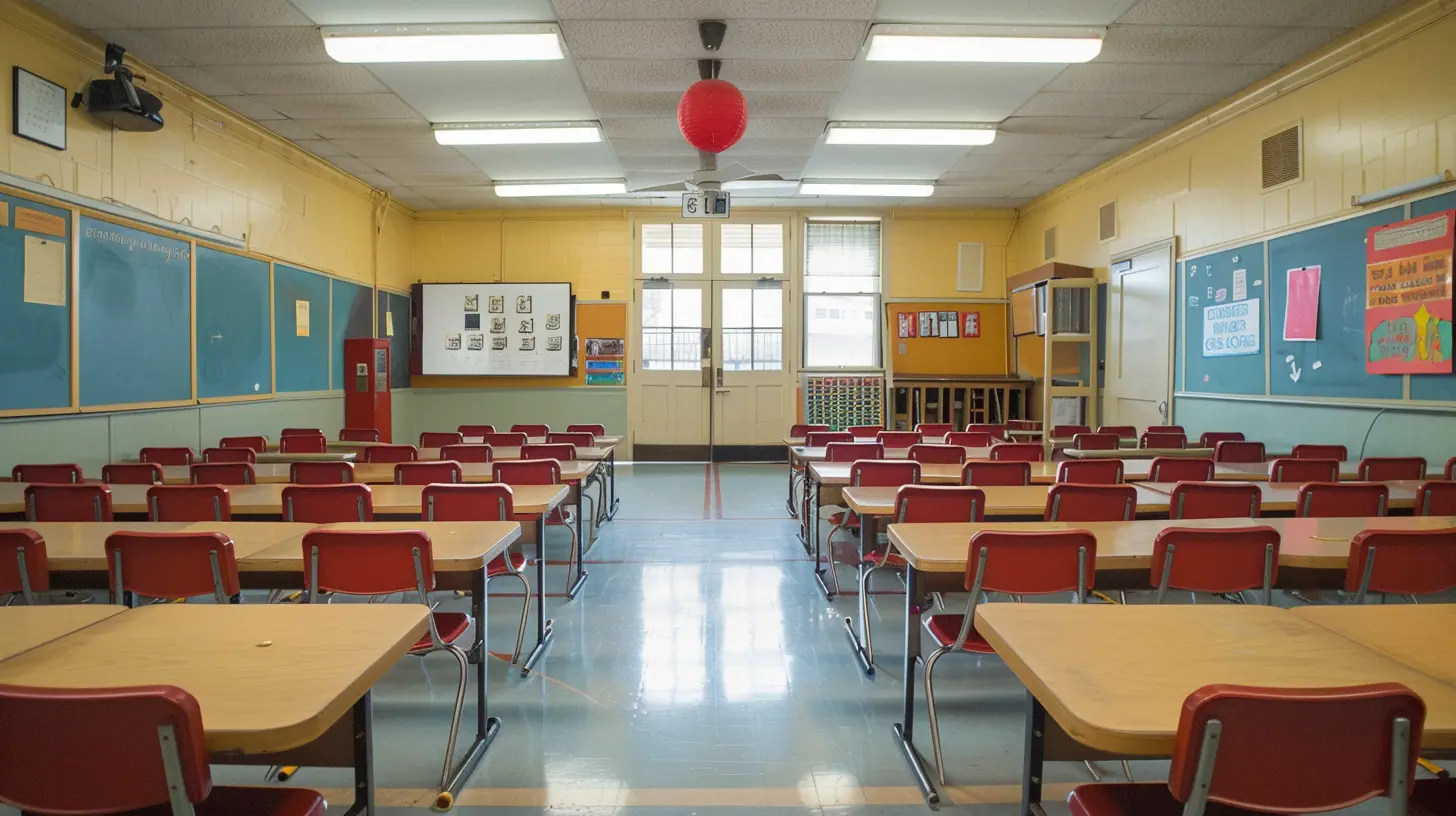The Policy Debate Over Charter Schools and Public Funding
6 June 2025
Education is one of the most debated topics in the U.S., and within that arena, the discussion around charter schools and public funding is especially heated. Some argue that charter schools provide much-needed alternatives to struggling public schools, while others claim they siphon resources from an already underfunded system. So, where does the truth lie? Let’s break it all down.

What Are Charter Schools?
Charter schools are publicly funded but independently run schools. Unlike traditional public schools, they have more flexibility in their curriculum, teaching methods, and overall structure. However, in exchange for this freedom, they must meet specific performance standards set by their authorizing body, which can be a local school district, state agency, or independent organization.Think of charter schools as the "startups" of the education world—they have room to innovate, but their success depends on performance, and if they fail, they can be shut down.

The Core Debate: Are Charter Schools Draining Public Education?
At the heart of the debate is funding. Since charter schools get public money, critics argue that they divert funds from traditional public schools. Supporters, on the other hand, believe charter schools give families better choices, especially in areas where traditional schools are failing.The Financial Argument: Who Gets the Money?
Public schools are funded primarily through a mix of federal, state, and local taxes. When students leave for a charter school, a portion of that funding follows them. Opponents of charter schools see this as harmful—after all, a public school still has fixed costs like teacher salaries, building maintenance, and transportation, even if some students leave.But here's the counterpoint: shouldn’t public funds follow the student instead of the institution? Charter advocates argue that education dollars should be about the child, not propping up a system that might not be working for them.
Performance: Are Charter Schools Better?
One reason many parents choose charter schools is the belief that they provide a better education. The truth? It varies.- Some charter schools outperform traditional public schools, especially in low-income areas where public education struggles.
- Others fail miserably, sometimes closing within a few years due to poor performance.
Unlike public schools, failing charter schools can be shut down. This accountability is a double-edged sword—while it weeds out bad schools, it also creates instability for families when closures happen.
Equity Concerns: Who Gets to Attend?
Traditional public schools are open to all students in a district, but charter schools operate on a lottery-based system when they have more applicants than available seats. Critics argue that this can lead to an uneven playing field.For example:
- Some charter schools may not have the resources to support students with disabilities effectively.
- Transportation barriers might limit access for lower-income families.
But proponents counter that many charter schools specifically focus on serving underserved communities, offering new opportunities where traditional schools have fallen short.

The Political Divide: Why Is This Controversial?
The debate over charter schools often falls along political lines, though not always neatly.- Democrats tend to have mixed views. While some support charter schools as a way to improve educational equity, teachers’ unions—strong Democratic allies—frequently oppose them, arguing they undermine public schools and weaken labor protections.
- Republicans generally favor school choice, including charter schools, as part of a broader push for market-driven education reform. They argue that competition improves all schools by forcing them to innovate.
However, there are exceptions on both sides. Some Democratic leaders have embraced charter schools in cities where public schools are underperforming, and some conservatives worry about charter schools’ long-term impact on rural education systems.

Public Funding: Should Tax Dollars Go to Charter Schools?
The core question isn’t just about whether charter schools should exist—it’s about whether they should receive the same (or more) funding compared to traditional public schools.This is complicated, since public education funding is already stretched thin. When charter schools receive funding, it often comes at the expense of traditional schools, leading to disputes over fairness.
Supporters argue that parents should have the right to choose the best education for their child, and public funding should reflect that. Critics maintain that diverting funds weakens traditional schools, which still serve the majority of students.
The Voucher Debate: Expanding School Choice?
Another layer to the conversation is school vouchers, which allow public funds to be used for private (including religious) schools. Charter schools differ in that they are still public institutions, but some see them as part of a broader movement toward privatizing education.Critics worry this trend could lead to further inequality, while supporters argue that competition breeds excellence and that families—especially low-income ones—should have options beyond a failing neighborhood school.
What’s the Future of Charter Schools?
So, where do we go from here? The answer likely isn’t black and white.1. Better Oversight – If charter schools are to continue expanding, there needs to be tighter regulation to ensure they provide quality education and don’t misuse public funds.
2. Funding Reform – The way public education is funded in the U.S. is outdated. Whether through a new funding model or better resource allocation, there needs to be a way to ensure that all schools—charter and traditional—can thrive.
3. Increased Accountability – Both charter and public schools need to be held to high standards. A failing school serves no one, whether it's a charter or traditional public school.
The Bottom Line
The debate over charter schools and public funding is complex, and there are valid arguments on both sides. At the end of the day, the real question isn’t about preserving systems or institutions—it’s about providing the best possible education for students.Should public funding follow the student? Should we focus on improving traditional public schools rather than expanding charter options? These are the critical questions that policymakers, educators, and families must continue to grapple with.
No matter where you stand, one thing is clear: the education of future generations is too important for one-size-fits-all answers.
all images in this post were generated using AI tools
Category:
Education PolicyAuthor:

Monica O`Neal
Discussion
rate this article
3 comments
Jacob Rocha
This article effectively highlights the complexities of the charter school debate, particularly the impact on public funding. It raises important questions about educational equity and resource allocation. Balancing innovation in education with the needs of public schools remains crucial for fostering a fair system for all students.
June 13, 2025 at 11:08 AM

Monica O`Neal
Thank you for your insightful comment! The complexities of this debate are indeed significant, and balancing innovation with equity is essential for all students.
Etta McTier
As the lines blur between charter schools and public funding, unseen forces pull at the fabric of education. What truths lie hidden beneath the surface of this ongoing debate?
June 8, 2025 at 10:29 AM

Monica O`Neal
The ongoing debate reveals complex dynamics between educational equity and accountability, highlighting the need for transparency in funding and governance to ensure that all students receive quality education.
Thorne McKinnon
This article provides a crucial overview of the charter school debate, highlighting the complexities of public funding in education. It effectively outlines the pros and cons, encouraging readers to consider the implications for equity and access in our educational system. A thoughtful examination of this contentious issue is much needed.
June 7, 2025 at 10:39 AM

Monica O`Neal
Thank you for your thoughtful insights! I'm glad the article resonated with you and helped illuminate the complexities of this important debate.



